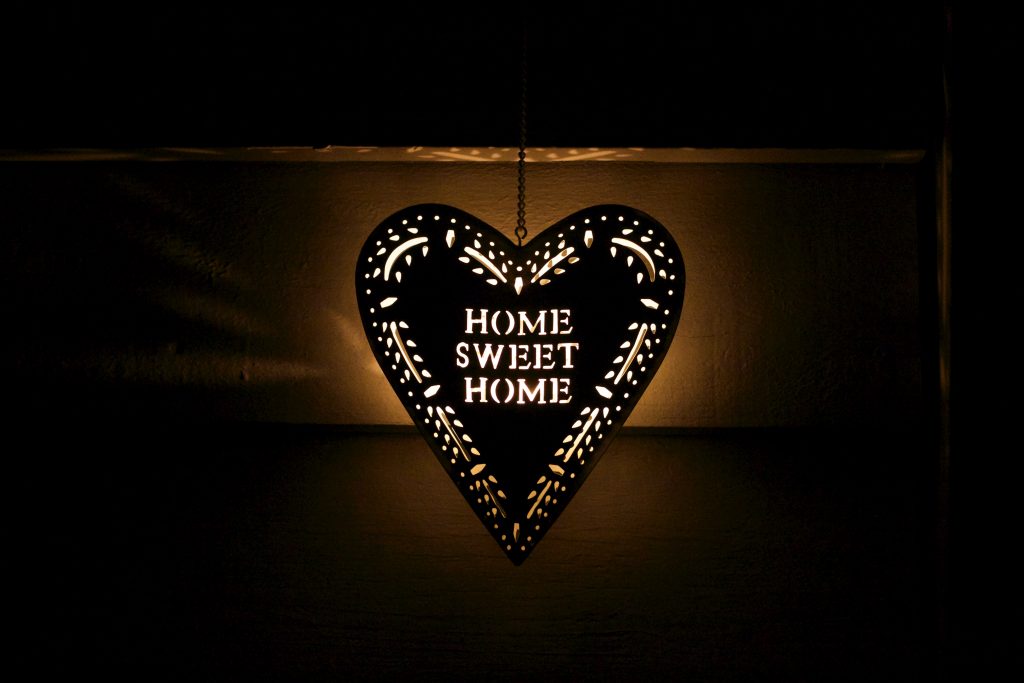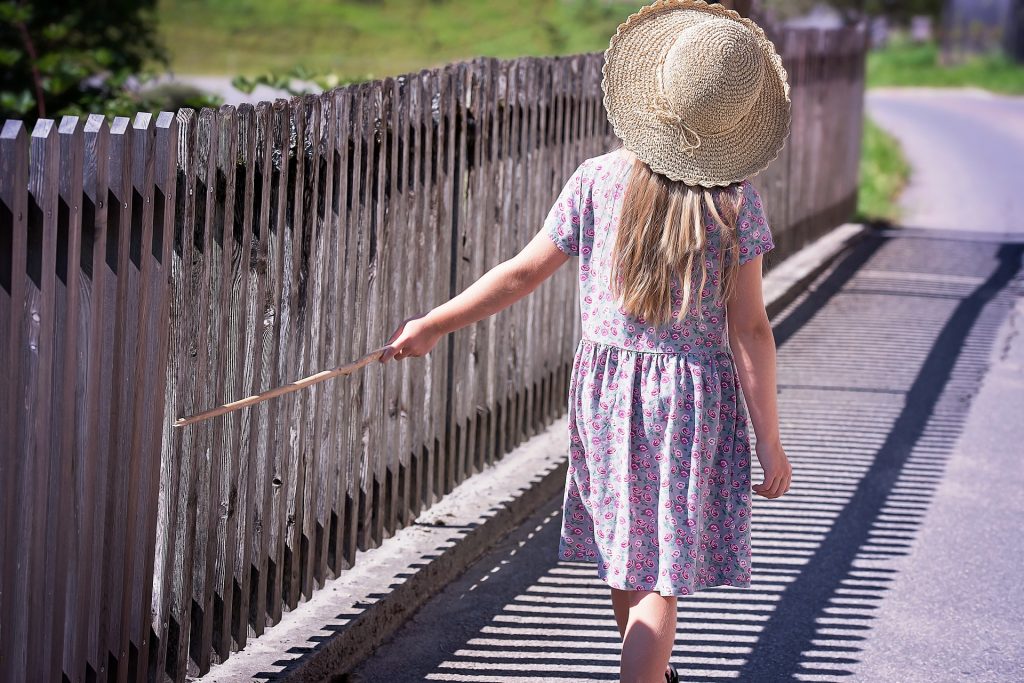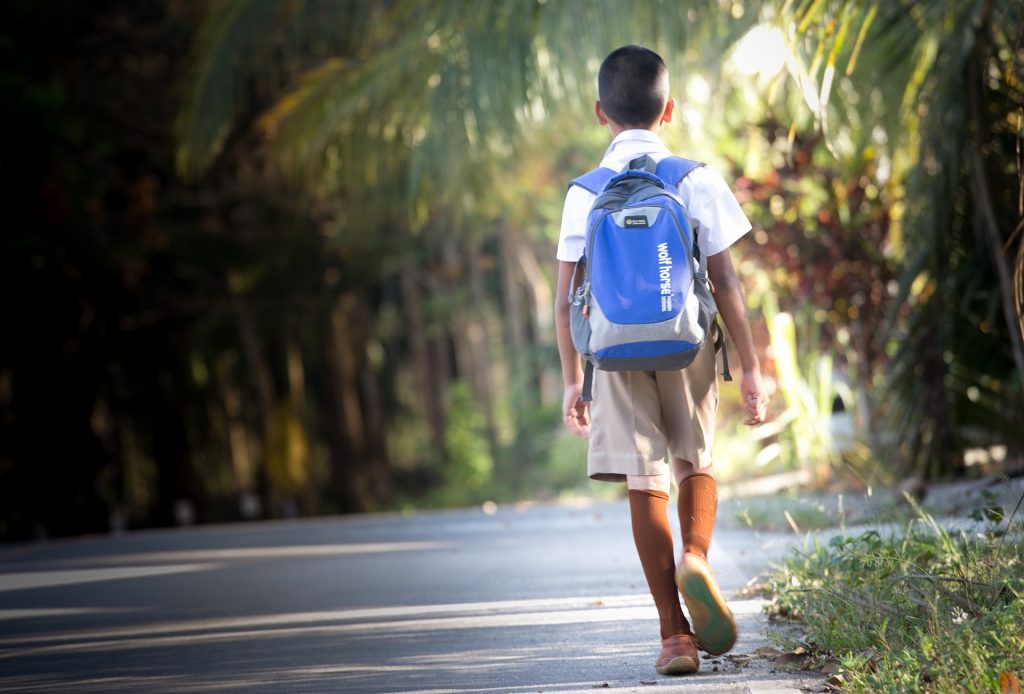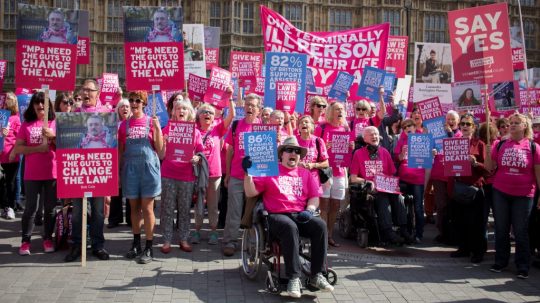Since 2014 the number of homeless children placed in temporary housing has soared by over a third. Councils in England are now providing temporary accommodation for more than 120,000 children and their families. What does this mean for the human rights of children?
According to the charity Shelter, 1.6 million children in England live in housing that’s temporary, overcrowded or run-down. Inadequate housing can negatively affect children and their families in numerous ways, including their health, well-being and access to education. It can also leave them feeling helpless.
So what protections exist to help these children and their families enforce their rights?
The right to adequate housing
 Image credit: Martin Frey /Flickr
Image credit: Martin Frey /Flickr
In UK law, local councils have legal duties towards homeless people, and some groups, including children, are entitled to emergency accommodation. The Housing Act 1996 requires local authorities to find accommodation for homeless families with children, 16 to 17 year olds who are not living with their families, and care leavers. This accommodation should be “suitable” and it’s unlawful for councils to keep homeless families in B&Bs for more than six weeks.
But these requirements are simply not being met. From January to March 2017, 1,290 families spent more than six weeks in such accommodation due to housing shortages. Furthermore, 74% of families stay in temporary accommodation for over a year.
Temporary housing is often unsuitable and can affect the physical health of children. Living in cramped conditions and with on-going insecurity and uncertainty can be damaging to the mental health of children and their families.
Children also have their own rights
 Image Credit: Pezibear / Pixabay
Image Credit: Pezibear / Pixabay
The United Nations Convention on the Rights of the Child (CRC) is an international treaty that protects the human rights of children. Adequate housing is a human right recognised under Article 27 of the CRC, which says that governments must ensure that every child has an adequate standard of living which allows them to develop fully.
The UK signed up to the CRC in 1991 and promised to implement and uphold the human rights standards as set out in the treaty. However, CRC rights are not directly enforceable in the same way that the rights under the Human Rights Convention are.
A human right to family and home life
 Image Credit: Dagon / Pixbay
Image Credit: Dagon / Pixbay
Lack of proper housing can have a broad and devastating impact. A family evicted from their home and living in temporary accommodation recently described how their children’s mental health had “really suffered” and that they “find it hard to find friends”.
Anmol remembers that one of her worst memories was ‘celebrating’ her 14th birthday in temporary accommodation.
Although my mum tried so hard to make it special it wasn’t. It wasn’t homely and I felt too ashamed to bring my friends back to cut my cake. I wasn’t given any help or advice. It affected my mental health and left me with anxiety, I felt I lost all hope in my future.
Children’s human right to respect for their home, private and family life is protected by Article 8 of the Human Rights Convention. Although Article 8 doesn’t guarantee the right to have housing issues solved by the authorities, if a child is unable to enjoy their right to family and home life due to inadequate accommodation, they might be able to use Article 8 to help provide them with a remedy.
Some accommodation might also be so unsanitary and dangerous that it would meet the threshold for inhuman and degrading treatment under Article 3 of the Human Rights Convention.
Right to education
 Image Credit: Samanitvijit / Pixabay
Image Credit: Samanitvijit / Pixabay
Temporary accommodation can make it difficult for children to attend their school, disrupt friendships and make it hard for them to focus on their school work.
A child’s right to education is protected under Protocol 1 and 2 of the Human Rights Convention. The government is required to do all that is necessary to ensure access to education for children, and that would include making sure that a child’s school life was not impaired by their accommodation situation.
So, what next?
The Local Government Association, which represents 350 councils across England, say that councils need to be able to build more “genuinely affordable” homes and provide the support that reduces the risk of homelessness. Council leaders are also calling for access to funding to provide settled accommodation for families that become homeless.
A spokesperson from the Department for Communities and Local Government (DCLG) said that the government is investing 550 million in helping to tackle the homelessness issue.
However, Anne Baxendale, director of campaigns and policy at Shelter, said that the government needs to go further and, “abandon the freeze on housing benefit that’s denying thousands of families the essential top-up needed to pay for rising rents. And, in the longer term, they must build decent homes that families on lower incomes can actually afford to live in.”
This article is not legal advice and is not intended to advise comprehensively about your legal rights. If you have legal questions relating to housing, homelessness or any other matter we suggest that you consult a lawyer – details of how to find one are here.







